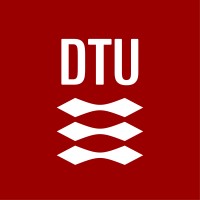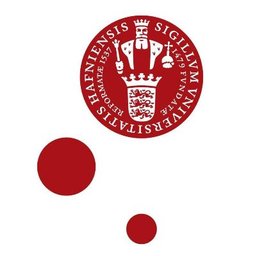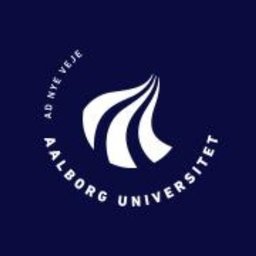The project takes place in the Quantum Light Sources group at DTU Electro, where we design, model, fabricate and test sources of single photons or entangled photon pairs. These are essential components for optical quantum computers and quantum networks, where one bit of information is encoded in the quantum state of a single photon.
You will be part of a team of 10-12 people between senior staff and Bachelor/Master/PhD students that is trying to establish the indispensable building blocks for the quantum technology of tomorrow.
Responsibilities
You overall focus will be to develop theoretical models to describe the dynamics of quantum light sources, with the goal of understanding their behavior and improve their performance. You will work in close collaboration with the experimental team, and your theory will provide important guidelines for the experiments performed in our lab.
The primary tasks will be to:
- develop quantum-mechanical models of individual emitters driven with short laser pulses
- develop numerical codes to calculate the system dynamics by solving partial differential equations (e.g. Schrödinger equation, von Neumann equation)
- model the coupling to lattice vibrations (i.e. phonons) with state-of-the-art numerical techniques
- calculate the transmission and reflection of light through a semiconductor
- present you results to the group and engage in discussions with the experimental team
- co-supervise BSc and MSc student projects
As part of the Danish PhD program, you will also take PhD courses, participate in teaching, conduct an external research stay, and disseminate your research through publications.
Qualifications
You must have a two-year master's degree (120 ECTS points) or a similar degree with an academic level equivalent to a two-year master's degree.
Additionally, you have:
- good knowledge of quantum mechanics
- knowledge of electromagnetism and solid-state physics
- experience with scientific programming with e.g. Python, Matlab, Julia
- experience with writing a scientific paper and/or presenting your work to a scientific audience
Approval and Enrolment
The scholarship for the PhD degree is subject to academic approval, and the candidate will be enrolled in one of the general degree programmes at DTU. For information about our enrolment requirements and the general planning of the PhD study programme, please see DTU's rules for the PhD education.
Assessment
The assessment of the candidates will be made by Assoc. Prof. Luca Vannucci.
We offer
DTU is a leading technical university globally recognized for the excellence of its research, education, innovation and scientific advice. We offer a rewarding and challenging job in an international environment. We strive for academic excellence in an environment characterized by collegial respect and academic freedom tempered by responsibility.
Salary and appointment terms
The appointment will be based on the collective agreement with the Danish Confederation of Professional Associations. The allowance will be agreed upon with the relevant union.
The period of employment is 3 years. Starting date is 1 January 2026 (or according to mutual agreement). The position is a full-time position.
You can read more about career paths at DTU here.
Further information
Further information may be obtained from Assoc. Prof. Luca Vannucci, [email protected].
You can read more about DTU Electro at www.electro.dtu.dk.
For more specific information on the Quantum Light Sources group, see also https://electro.dtu.dk/research/research-areas/nanophotonics/quantum-light-sources.
If you are applying from abroad, you may find useful information on working in Denmark and at DTU at DTU – Moving to Denmark. Furthermore, you have the option of joining our monthly free seminar “PhD relocation to Denmark and startup “Zoom” seminar” for all questions regarding the practical matters of moving to Denmark and working as a PhD at DTU.
Application procedure
Your complete online application must be submitted no later than 18 September 2025 (23:59 Danish time). Applications must be submitted as one PDF file containing all materials to be given consideration. To apply, please open the link "Apply now", fill out the online application form, and attach all your materials in English in one PDF file. The file must include:
- A letter motivating the application (cover letter)
- Curriculum vitae
- Grade transcripts and BSc/MSc diploma (in English) including official description of grading scale
- A list of publications
You may apply prior to obtaining your master's degree but cannot begin before having received it.
Applications received after the deadline will not be considered.
All interested candidates irrespective of age, gender, disability, race, religion or ethnic background are encouraged to apply. As DTU works with research in critical technology, which is subject to special rules for security and export control, open-source background checks may be conducted on qualified candidates for the position.
The Department of Electrical and Photonics Engineering (DTU Electro) has nearly 300 employees of which around 200 research different aspects of photonics. Research is performed within nanophotonics, photonic nanotechnology, lasers, quantum photonics, optical sensors, LEDs, photovoltaics, ultra-high speed optical transmission systems, and bio-photonics.
Technology for people
DTU develops technology for people. With our international elite research and study programmes, we are helping to create a better world and to solve the global challenges formulated in the UN’s 17 Sustainable Development Goals. Hans Christian Ørsted founded DTU in 1829 with a clear mission to develop and create value using science and engineering to benefit society. That mission lives on today. DTU has 13,500 students and 6,000 employees. We work in an international atmosphere and have an inclusive, evolving, and informal working environment. DTU has campuses in all parts of Denmark and in Greenland, and we collaborate with the best universities around the world.


